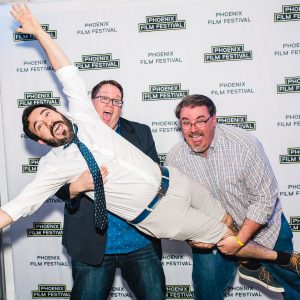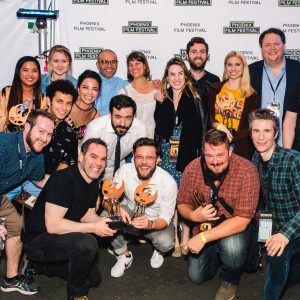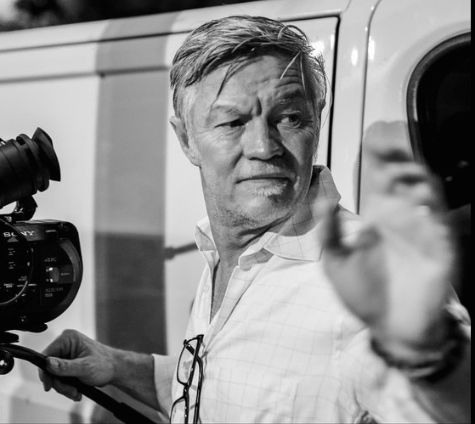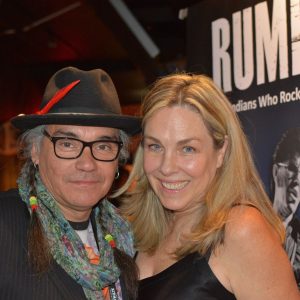
 The 12th European Independent Film Festival (ECU) will take place in Paris on April 21, 22 and 23.
The 12th European Independent Film Festival (ECU) will take place in Paris on April 21, 22 and 23.
Searching for untold stories and fresh perspectives? Look no further. From April 21 until April 23, the Cinema Les 7 Parnassiens in Paris will host the 12th edition of ECU.
Highlights include 73 films from 28 countries, 3 workshops with industry professionals and for the first time this year, a roundtable of female directors (28 were selected to be part of this year’s festival). The European Independent Film Festival has made a name for itself and has become a reference for indie filmmakers throughout the world.
We met with Scott Hillier, founder and president of ECU to ask a few questions about the festival, along with lessons learned over the years and the current state of independent film.
What makes ECU special and different from other film festivals?
S.H.: We are proudly a filmmaker’s film festival. I am a film director and not a film festival manager. It is a festival run by filmmakers. It is Europe’s largest independent film festival. All the jury, all the judges–we have 60 submission judges all around the world–are alumni. People who have participated in the festival come back to give a hand. And I think that is pretty unique.
2017 marks your 12th edition. What have you learned over the years?
S.H.: There are still great stories being told and it is so much easier now to make films with the technology and everything at people’s hands. But no matter how many brand-new cameras or brand-new lenses or this or that, it still takes a good story to make a good film. Also over the last 12 years, the digitalization has made our jobs so much easier. We can reach so many people nowadays.
What is the role of indie films and indie film festivals in today’s world?
S.H.: The independent film world is a niche market. Very small. Very selective. But it is also a way of getting true, unfiltered stories. You can actually get real, true, genuine stories told by people who really don’t care, which I think is important. The poet Rimbaud didn’t care … some of his poetry is amazing, some is really weird as well. I feel that the independent film world gives people a voice to say things the way they are, rather than having to go through audience screenings. An executive producer will want their money back so they are trying to get the biggest audience possible. So you don’t say this, you can’t say that.
In our film festival, we give people the chance to get their stories out to an audience. And that’s hard because people prefer to watch Netflix in their pajamas rather than get up and go to a cinema.
 What advice would you have for independent filmmakers?
What advice would you have for independent filmmakers?
S.H.: Find a great story, pick up a camera and go out and shoot. Right now, I just try to make as many things as I possibly can, just to keep developing my skill. The advice is: you are just going to make stuff. Don’t get caught up on: this is going to take this long, because you get known by your body of work rather than just one film.
What has been the key to success for your festival?
S.H.: The proof of our success is that filmmakers still send us their films. The festival never gets bigger and better than the films and filmmakers that attend. I go to a lot of film festivals and I tend to think that they think that they are more important than the films. We will never let that happen … we have a very international audience that comes. At least 60% of our attendees are international. That’s fabulous. The key to our success is engagement. I got a great team around me. Social media is very important to what we do. We are very honest about what do. We don’t have any external financing. I fund the film festival and the submissions pay for it as well.
ECU-on-the-road [an international program to screen ECU’s awarded films abroad] is something I have been pushing ever since I started the festival. I think it is important to show our films. The films rewarded at our festival are Europe’s best independent films. Our festival partners: festivals, cultural centers, love the idea.
Did you have all that in mind when you launched the festival?
S.H. : I launched it for many reasons. One of them was that I had been told:
“Independent films are rubbish: bad lightning and bad acting.” I said: “No, I am a professional filmmaker and I make independent films.” There are a lot of people out there like me who are making films and who can’t get a voice. So they really need a film festival like this. The festival started with a lot of drive and determination. In hindsight, there was never any big global plan, except to just keep going, because we believe that’s right and that’s good. Being very honest and keeping it very simple. People coming back and submitting their films is the whole reason. I hate going to film festivals where you get closeted off and you can’t meet the filmmakers. You never see an actor or an actress and it’s all glitz and glamor. It’s great but it’s got nothing to do with making good stories. At ECU, there’s no read carpet or limousine. But you walk out and you can talk to the directors, editors, cameramen and I believe this is a true, creative film experience.
Will you be in Paris this spring? Find tickets and passes.
Images credit:
Scott Hillier at the ECU Festival launch in Paris.
Hillier & independent filmmakers selected for the festival.
© Caroline Planque
Film >

 Brown Paper Tickets has some really fantastic decades-long relationships with event organizers. For example, we’ve partnered with the Phoenix Film Festival for more than 13 years now! Today we sat down with Jason Carney, Executive Director of the Phoenix Film Foundation to pick his brain about the Phoenix Film Festival.
Brown Paper Tickets has some really fantastic decades-long relationships with event organizers. For example, we’ve partnered with the Phoenix Film Festival for more than 13 years now! Today we sat down with Jason Carney, Executive Director of the Phoenix Film Foundation to pick his brain about the Phoenix Film Festival.







 Arts
Arts Comedy
Comedy Event Tips
Event Tips Film
Film Food & Drink
Food & Drink Good Causes
Good Causes Music
Music News
News Radio
Radio Roller Derby
Roller Derby